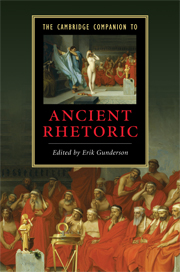Appendix 2: Authors and prominent individuals
Published online by Cambridge University Press: 28 January 2010
Summary
These biographies are intended to offer a quick and handy reference for readers of this volume. The information on offer is, then, minimal and highly selective. It seldom goes much beyond an author’s name, era, and basic intellectual affiliations or achievements. Parentheses after a name indicate optional information that is often used to disambiguate men of similar or identical names.
Achilles Tatius (second century ce) Achilles Tatius was from Alexandria, and he wrote the romance Leucippe and Cleitophon. The plot is conventional, but the form and the contents of the text evince erudite preoccupations characteristic of the Second Sophistic. Literary criticism of this “ancient novel” should not be undertaken independently of an appreciation of the rhetorical culture whence it arose.
Aelian (c. 170–235 ce) Aelian was from Praeneste in Italy. He taught rhetoric in Rome and is the author of a Miscellaneous History and On Animals. Philostratus praises his Atticism and unadorned style.
Aelius Theon (c. first? century ce) Aelius was from Alexandria. He was a teacher of rhetoric and the author of a collection of Progymnasmata or Preliminary Rhetorical Exercises.
Aeschines (c. 396 – c. 322 bce) Aeschines was an Athenian and one of the ten canonical orators. His style was singled out for its clarity and lofty tone. He is very much remembered for his high-profile clashes with the orator Demosthenes. A devastating loss at the hands of Demosthenes results in Aeschines’ exile from Athens. He is said to have founded a school of rhetoric at Rhodes during his exile. Only three of his speeches remain.
- Type
- Chapter
- Information
- The Cambridge Companion to Ancient Rhetoric , pp. 299 - 313Publisher: Cambridge University PressPrint publication year: 2009

